5 brilliant mathematicians and their impact on the modern world
We owe a great debt to scores of mathematicians who helped lay the foundation for our modern society with their discoveries. Here are some of the most important.
Math. It's one of those things that most people either love or hate. Those who fall on the hate side of things might still have nightmares of showing up for a high school math test unprepared, even years after graduation. Math is, by nature, an abstract subject, and it can be hard to wrap your head around it if you don't have a good teacher to guide you.
But even if you don't count yourself a fan of mathematics, it's hard to argue that it hasn't been a vital factor in our rapid evolution as a society. We reached the moon because of math. Math allowed us to tease out the secrets of DNA, create and transmit electricity over hundreds of miles to power our homes and offices, and gave rise to computers and all that they do for the world. Without math, we'd still be living in caves getting eaten by cave tigers.
Our history is rich with mathematicians who helped advance our collective understanding of math, but there are a few standouts whose brilliant work and intuitions pushed things in huge leaps and bounds. Their thoughts and discoveries continue to echo through the ages, reverberating today in our cellphones, satellites, hula hoops and automobiles. We picked five of the most brilliant mathematicians whose work continues to help shape our modern world, sometimes hundreds of years after their death. Enjoy!

Photo: Wikimedia Commons
Isaac Newton (1642-1727)
We start our list with Sir Isaac Newton, considered by many to be the greatest scientist of all time. There aren't many subjects that Newton didn't have a huge impact in — he was one of the inventors of calculus, built the first reflecting telescopeand helped establish the field of classical mechanics with his seminal work, "Philosophiæ Naturalis Principia Mathematica." He was the first to decompose white light into its component colors and gave us the three laws of motion, now known as Newton's laws. (You might remember the first one from school: "Objects at rest tend to stay at rest and objects in motion tend to stay in motion unless acted upon by an external force.")
We would live in a very different world had Sir Isaac Newton not been born. Other scientists would probably have worked out most of his ideas eventually, but there is no telling how long it would have taken and how far behind we might have fallen from our current technological trajectory.

Photo: Wikimedia Commons
Carl Gauss (1777-1855)
Isaac Newton is a hard act to follow, but if anyone can pull it off, it's Carl Gauss. If Newton is considered the greatest scientist of all time, Gauss could easily be called the greatest mathematician ever. Carl Friedrich Gauss was born to a poor family in Germany in 1777 and quickly showed himself to be a brilliant mathematician. He published "Arithmetical Investigations," a foundational textbook that laid out the tenets of number theory (the study of whole numbers). Without number theory, you could kiss computers goodbye. Computers operate, on a the most basic level, using just two digits — 1 and 0, and many of the advancements that we've made in using computers to solve problems are solved using number theory. Gauss was prolific, and his work on number theory was just a small part of his contribution to math; you can find his influence throughout algebra, statistics, geometry, optics, astronomy and many other subjects that underlie our modern world.

Photo: Wikimedia Commons
John von Neumann (1903-1957)
John von Neumann was born János Neumann in Budapest a few years after the start of the 20th century, a well-timed birth for all of us, for he went on to design the architecture underlying nearly every single computer built on the planet today. Right now, whatever device or computer that you are reading this on, be it phone or computer, is cycling through a series of basic steps billions of times over each second; steps that allow it to do things like render Internet articles and play videos and music, steps that were first thought up by John von Neumann.
Von Neumann received his Ph.D in mathematics at the age of 22 while also earning a degree in chemical engineering to appease his father, who was keen on his son having a good marketable skill. Thankfully for all of us, he stuck with math. In 1930, he went to work at Princeton University with Albert Einstein at the Institute of Advanced Study. Before his death in 1957, von Neumann made important discoveries in set theory, geometry, quantum mechanics, game theory, statistics, computer science and was a vital member of the Manhattan Project.

Photo: Wikimedia Commons
Alan Turing (1912-1954)
Alan Turing a British mathematician who has been call the father of computer science. During World War II, Turing bent his brain to the problem of breaking Nazi crypto-code and was the one to finally unravel messages protected by the infamous Enigma machine. Being able to break Nazi codes gave the Allies an enormous advantage and was later credited by Winston Churchill as one of the main reasons the Allies won the war.
Besides helping to stop Nazi Germany from achieving world domination, Alan Turing was instrumental in the development of the modern day computer. His design for a so-called "Turing machine" remains central to how computers operate today. The "Turing test" is an exercise in artificial intelligence that tests how well an AI program operates; a program passes the Turing test if it can have a text chat conversation with a human and fool that person into thinking that it too is a person.
Alan Turing's career and life ended tragically when he was arrested and prosecuted for being gay. He was found guilty and sentenced to undergo hormone treatment to reduce his libido, losing his security clearance as well. On June, 8, 1954, Alan Turing was found dead of apparent suicide by his cleaning lady.
Turing's contributions to computer science can be summed up by the fact that his name now adorns the field's top award. The Turing Award is to computer science what the Nobel Prize is to chemistry or the Fields Medal is to mathematics. In 2009, then British Prime Minister Gordon Brown apologized for how his government treated Turing, but stopped short of issuing an official pardon.

Photo: Wikimedia Commons
Benoit Mandelbrot (1924-2010)
Benoit Mandelbrot landed on this list thanks to his discovery of fractal geometry. Fractals, often-fantastical and complex shapes built on simple, self-replicable formulas, are fundamental to computer graphics and animation. Without fractals, it's safe to say that we would be decades behind where we are now in the field of computer-generated images. Fractal formulas are also used to design cellphone antennas and computer chips, which takes advantage of the fractal's natural ability to minimize wasted space.
Mandelbrot was born in Poland in 1924 and had to flee to France with his family in 1936 to avoid Nazi persecution. After studying in Paris, he moved to the U.S. where he found a home as an IBM Fellow. Working at IBM meant that he had access to cutting-edge technology, which allowed him to apply the number-crunching abilities of electrical computer to his projects and problems. In 1979, Mandelbrot discovered a set of numbers, now called the described by science-fiction writer Arthur C. Clarke as Mandelbrot set, that were "one of the most beautiful and astonishing discoveries in the entire history of mathematics." (To learn more about the technical steps behind drawing the Mandelbrot set, click over to the infographic I made last year for a class that I'm taking.)
Benoit Mandelbrot died of pancreatic cancer in 2010.https://www.mnn.com/green-tech/research-innovations/blogs/5-brilliant-mathematicians-and-their-impact-on-the-modern
とても興味深く読みました:ゼロ除算の発見はどうでしょうか:
再生核研究所声明 404(2017.12.30):
ゼロ除算の現状 ― 総合的な印象
ゼロ除算の著書を出版すべく執筆をしている。700件を超えるメモ、記録を参照しながら一応の素案、原案を152ページに纏めた。ゼロ除算発見4周年を目前にしている。そこで、ふと思い湧く印象について述べて置きたい。
ゼロ除算発見 4周年 目前で、数理論の内容は初歩数学であるから、全体が何もかも当たり前に思え、700件を超える知見も当たり前で、著書は簡潔に纏め切れると感じてきた。そのような折り、学位論文で提起、最初の著書で真正面から取り上げ、論じ、未解決の問題と述べてきた超難問が解けたとの論文が 北京大学 のQi'an Guan氏から送られてきた。秀才の関係者も解けず、関与する数学者ももはや世界に存在せず、従ってもはや300年以上も もう解決できないだろうと考えてきた。最初の著書出版1988年からでもちょうど30年を迎えている。全く予想できない発想、深い手段、複雑な構造、このような全く新奇な数学に驚嘆すると共に 北京大学の基礎の深さ、底力の大きさに驚嘆させられ、高貴な独創性、創造性、発想に感銘を受けている。 このような衝撃は友人の山田陽氏の研究などにも見られたが稀なる経験である。
この衝撃的な深い研究、高貴な理論に感銘している折りに、自らの著書、論文の位置づけについて思いを巡らすこととなった。
まずは、ゼロ除算の論理が、ゼロ除算の拓いた世界が当たり前と思える内容であるが、内容がアリストテレス、ユークリッド以来の世界観を変えるものである。 数学ではゼロ除算は未定義、不定性、不可能性が世の定説であるが、天才たちのいろいろな関与、昨年でも2編の大論文が発表されている。 ゼロ除算の永い、神秘的な歴史を回想すると、内容の意味の大きさと、理論の簡素さの大きな隔たりに、驚嘆させられる。極めて簡単な発見が、世界観の変更を要求している:
無限遠点はゼロで表される。すべての直線は原点を通り、ユークリッドの公理は成り立たない。 y軸の勾配はゼロ、\tan(\pi/2) =0であること。解析関数は孤立特異点で固有な値を取り、それが 重要な意味を持つこと。ゼロ除算の影響は初歩数学全般におよび、現代数学には大きな欠落、欠陥があるから、全般的に補充し、完全化されるべきである。極めて簡単な数学が、発見されて大きな影響を広く与える事実である。この差の大きさを 現代数学の目も眩むような高度さ、深さ、徹底した論理の厳格さの視点から思うとき、誠に奇妙な事件に思われて仕方がない。 余りにも大きな新規な結果に、そんなものは受け入れられないとは 多く人の印象であり、論文を相当発表、学会や国際会議でも講演を行っているにも関わらず、4年近く経っても公認の形にはなっていないようである。世間では新しい、基本的な数学が知られていないと言える。―― 我々の空間の認識がアリストテレス、ユークリッド以来 間違っているにも関わらずである。
ゼロ除算 0/0=0は 算術の創始者、ゼロの発見者 Brahmagupta (598 -668 ?) によって定義されていたにも関わらず、それは間違いであるとして1300年を超えて続いており、さらに、新たな説、論文が出版されている実におかしな状況にある。しかるに我々は ゼロ除算は既に当たり前であるとして、沢山の証拠を掲げて解説、説得を続けているが、理解は着実に進んでいるにも関わらず、理解は深くはなく、遅々として夜明け前のぼんやりしているような時代であると言える。数学者は、真実に忠実でなければならないのに、数学の研究では、論理には、感情や私情、予断、思い込みを入れてはならないのに、それが、数学の精神であるはずなのに かえって、数学者が予断と偏見、私情に囚われている状況が皮肉にも良く見える。 それは、ゼロ除算の理解が、素人の方の方が理解しやすい状況に現れている。 ― 数学は 絶対的に 厳格な論理でできているはずであるから、基礎が揺るぐはずがないとの信仰、信念を有しているためであろう。しかしながら、人間精神の開放と自由を求めて、非ユークリッド幾何学の出現から、人は大いに学ぶべきではないだろうか。 絶えず、人は何でも疑い、 と 問うべきである。 ― 人間存在の意義は 真智への愛にある。
今回の著書原案では一通り全体を纏めてみたが、全体の様子は、まずゼロ除算の導入をきちんと行い、論理をしっかりさせ、確立させ、歴史的な背景を述べ、ゼロ除算算法の考え方とその有効性を示す具体例を沢山述べた。それで、今まで、考えなかった世界の自然な大きな世界が良く見える様になるだろう。この時、我々の数学が、空間の認識が、如何に不完全なものであったかを 明白に理解されるだろう。
ゼロ除算のこの著書は 第1歩であり、いわば初歩入門書である。 本格的なゼロ除算の研究はここから始まると考えたい。Qi'an Guan氏のような数学者や、物理学者が現れて、ゼロ除算の世界は、面目を一新させ、目も眩むほどに発展させるだろうことを 信じて疑わない。
以 上
再生核研究所声明353(2017.2.2) ゼロ除算 記念日
2014.2.2 に 一般の方から100/0 の意味を問われていた頃、偶然に執筆中の論文原稿にそれがゼロとなっているのを発見した。直ぐに結果に驚いて友人にメールしたり、同僚に話した。それ以来、ちょうど3年、相当詳しい記録と経過が記録されている。重要なものは再生核研究所声明として英文と和文で公表されている。最初のものは
再生核研究所声明 148(2014.2.12): 100/0=0, 0/0=0 - 割り算の考えを自然に拡張すると ― 神の意志
で、最新のは
Announcement 352 (2017.2.2): On the third birthday of the division by zero z/0=0
である。
アリストテレス、ブラーマグプタ、ニュートン、オイラー、アインシュタインなどが深く関与する ゼロ除算の神秘的な永い歴史上の発見であるから、その日をゼロ除算記念日として定めて、世界史を進化させる決意の日としたい。ゼロ除算は、ユークリッド幾何学の変更といわゆるリーマン球面の無限遠点の考え方の変更を求めている。― 実際、ゼロ除算の歴史は人類の闘争の歴史と共に 人類の愚かさの象徴であるとしている。
心すべき要点を纏めて置きたい。
1) ゼロの明確な発見と算術の確立者Brahmagupta (598 - 668 ?) は 既にそこで、0/0=0 と定義していたにも関わらず、言わば創業者の深い考察を理解できず、それは間違いであるとして、1300年以上も間違いを繰り返してきた。
2) 予断と偏見、慣習、習慣、思い込み、権威に盲従する人間の精神の弱さ、愚かさを自戒したい。我々は何時もそのように囚われていて、虚像を見ていると 真智を愛する心を大事にして行きたい。絶えず、それは真かと 問うていかなければならない。
3) ピタゴラス派では 無理数の発見をしていたが、なんと、無理数の存在は自分たちの世界観に合わないからという理由で、― その発見は都合が悪いので ― 、弟子を処刑にしてしまったという。真智への愛より、面子、権力争い、勢力争い、利害が大事という人間の浅ましさの典型的な例である。
4) この辺は、2000年以上も前に、既に世の聖人、賢人が諭されてきたのに いまだ人間は生物の本能レベルを越えておらず、愚かな世界史を続けている。人間が人間として生きる意義は 真智への愛にある と言える。
5) いわば創業者の偉大な精神が正確に、上手く伝えられず、ピタゴラス派のような対応をとっているのは、本末転倒で、そのようなことが世に溢れていると警戒していきたい。本来あるべきものが逆になっていて、社会をおかしくしている。
6) ゼロ除算の発見記念日に 繰り返し、人類の愚かさを反省して、明るい世界史を切り拓いて行きたい。
以 上
追記:
The division by zero is uniquely and reasonably determined as 1/0=0/0=z/0=0 in the natural extensions of fractions. We have to change our basic ideas for our space and world:
Division by Zero z/0 = 0 in Euclidean Spaces
Hiroshi Michiwaki, Hiroshi Okumura and Saburou Saitoh
International Journal of Mathematics and Computation Vol. 28(2017); Issue 1, 2017), 1-16.
http://www.scirp.org/journal/alamt http://dx.doi.org/10.4236/alamt.2016.62007
http://www.ijapm.org/show-63-504-1.html
http://www.diogenes.bg/ijam/contents/2014-27-2/9/9.pdf
http://www.ijapm.org/show-63-504-1.html
http://www.diogenes.bg/ijam/contents/2014-27-2/9/9.pdf
再生核研究所声明371(2017.6.27)ゼロ除算の講演― 国際会議 https://sites.google.com/site/sandrapinelas/icddea-2017 報告
http://ameblo.jp/syoshinoris/theme-10006253398.html
1/0=0、0/0=0、z/0=0
http://ameblo.jp/syoshinoris/entry-12276045402.html
1/0=0、0/0=0、z/0=0
http://ameblo.jp/syoshinoris/entry-12263708422.html
1/0=0、0/0=0、z/0=0
ソクラテス・プラトン・アリストテレス その他
ゼロ除算の論文リスト:
List of division by zero:
L. P. Castro and S. Saitoh, Fractional functions and their representations, Complex Anal. Oper. Theory {\bf7} (2013), no. 4, 1049-1063.
M. Kuroda, H. Michiwaki, S. Saitoh, and M. Yamane,
New meanings of the division by zero and interpretations on $100/0=0$ and on $0/0=0$, Int. J. Appl. Math. {\bf 27} (2014), no 2, pp. 191-198, DOI: 10.12732/ijam.v27i2.9.
T. Matsuura and S. Saitoh,
Matrices and division by zero z/0=0,
Advances in Linear Algebra \& Matrix Theory, 2016, 6, 51-58
Published Online June 2016 in SciRes. http://www.scirp.org/journal/alamt
\\ http://dx.doi.org/10.4236/alamt.201....
T. Matsuura and S. Saitoh,
Division by zero calculus and singular integrals. (Differential and Difference Equations with Applications. Springer Proceedings in Mathematics \& Statistics.)
T. Matsuura, H. Michiwaki and S. Saitoh,
$\log 0= \log \infty =0$ and applications. (Submitted for publication).
H. Michiwaki, S. Saitoh and M.Yamada,
Reality of the division by zero $z/0=0$. IJAPM International J. of Applied Physics and Math. 6(2015), 1--8. http://www.ijapm.org/show-63-504-1....
H. Michiwaki, H. Okumura and S. Saitoh,
Division by Zero $z/0 = 0$ in Euclidean Spaces,
International Journal of Mathematics and Computation, 28(2017); Issue 1, 2017), 1-16.
H. Okumura, S. Saitoh and T. Matsuura, Relations of $0$ and $\infty$,
Journal of Technology and Social Science (JTSS), 1(2017), 70-77.
S. Pinelas and S. Saitoh,
Division by zero calculus and differential equations. (Differential and Difference Equations with Applications. Springer Proceedings in Mathematics \& Statistics).
S. Saitoh, Generalized inversions of Hadamard and tensor products for matrices, Advances in Linear Algebra \& Matrix Theory. {\bf 4} (2014), no. 2, 87--95. http://www.scirp.org/journal/ALAMT/
S. Saitoh, A reproducing kernel theory with some general applications,
Qian,T./Rodino,L.(eds.): Mathematical Analysis, Probability and Applications - Plenary Lectures: Isaac 2015, Macau, China, Springer Proceedings in Mathematics and Statistics, {\bf 177}(2016), 151-182. (Springer) .
List of division by zero:
L. P. Castro and S. Saitoh, Fractional functions and their representations, Complex Anal. Oper. Theory {\bf7} (2013), no. 4, 1049-1063.
M. Kuroda, H. Michiwaki, S. Saitoh, and M. Yamane,
New meanings of the division by zero and interpretations on $100/0=0$ and on $0/0=0$, Int. J. Appl. Math. {\bf 27} (2014), no 2, pp. 191-198, DOI: 10.12732/ijam.v27i2.9.
T. Matsuura and S. Saitoh,
Matrices and division by zero z/0=0,
Advances in Linear Algebra \& Matrix Theory, 2016, 6, 51-58
Published Online June 2016 in SciRes. http://www.scirp.org/journal/alamt
\\ http://dx.doi.org/10.4236/alamt.201....
T. Matsuura and S. Saitoh,
Division by zero calculus and singular integrals. (Differential and Difference Equations with Applications. Springer Proceedings in Mathematics \& Statistics.)
T. Matsuura, H. Michiwaki and S. Saitoh,
$\log 0= \log \infty =0$ and applications. (Submitted for publication).
H. Michiwaki, S. Saitoh and M.Yamada,
Reality of the division by zero $z/0=0$. IJAPM International J. of Applied Physics and Math. 6(2015), 1--8. http://www.ijapm.org/show-63-504-1....
H. Michiwaki, H. Okumura and S. Saitoh,
Division by Zero $z/0 = 0$ in Euclidean Spaces,
International Journal of Mathematics and Computation, 28(2017); Issue 1, 2017), 1-16.
H. Okumura, S. Saitoh and T. Matsuura, Relations of $0$ and $\infty$,
Journal of Technology and Social Science (JTSS), 1(2017), 70-77.
S. Pinelas and S. Saitoh,
Division by zero calculus and differential equations. (Differential and Difference Equations with Applications. Springer Proceedings in Mathematics \& Statistics).
S. Saitoh, Generalized inversions of Hadamard and tensor products for matrices, Advances in Linear Algebra \& Matrix Theory. {\bf 4} (2014), no. 2, 87--95. http://www.scirp.org/journal/ALAMT/
S. Saitoh, A reproducing kernel theory with some general applications,
Qian,T./Rodino,L.(eds.): Mathematical Analysis, Probability and Applications - Plenary Lectures: Isaac 2015, Macau, China, Springer Proceedings in Mathematics and Statistics, {\bf 177}(2016), 151-182. (Springer) .
Title page of Leonhard Euler, Vollständige Anleitung zur Algebra, Vol. 1 (edition of 1771, first published in 1770), and p. 34 from Article 83, where Euler explains why a number divided by zero gives infinity.
私は数学を信じない。 アルバート・アインシュタイン / I don't believe in mathematics. Albert Einstein→ゼロ除算ができなかったからではないでしょうか。
ドキュメンタリー 2017: 神の数式 第2回 宇宙はなぜ生まれたのか
〔NHKスペシャル〕神の数式 完全版 第3回 宇宙はなぜ始まったのか
NHKスペシャル〕神の数式 完全版 第1回 この世は何からできているのか
NHKスペシャル 神の数式 完全版 第4回 異次元宇宙は存在するか
ゼロ除算の論文
Mysterious Properties of the Point at Infinity
Mysterious Properties of the Point at Infinity
再生核研究所声明 375 (2017.7.21):ブラックホール、ゼロ除算、宇宙論
本年はブラックホール命名50周年とされていたが、最近、wikipedia で下記のように修正されていた:
名称[編集]
"black hole"という呼び名が定着するまでは、崩壊した星を意味する"collapsar"[1](コラプサー)などと呼ばれていた。光すら脱け出せない縮退星に対して "black hole" という言葉が用いられた最も古い印刷物は、ジャーナリストのアン・ユーイング (Ann Ewing) が1964年1月18日の Science News-Letter の "'Black holes' in space" と題するアメリカ科学振興協会の会合を紹介する記事の中で用いたものである[2][3][4]。一般には、アメリカの物理学者ジョン・ホイーラーが1967年に "black hole" という名称を初めて用いたとされるが[5]、実際にはその年にニューヨークで行われた会議中で聴衆の一人が洩らした言葉をホイーラーが採用して広めたものであり[3]、またホイーラー自身は "black hole" という言葉の考案者であると主張したことはない[3]。https://ja.wikipedia.org/wiki/%E3%83%96%E3%83%A9%E3%83%83%E3%82%AF%E3%83%9B%E3%83%BC%E3%83%AB
世界は広いから、情報が混乱することは よく起きる状況がある。ブラックホールの概念と密接な関係のあるゼロ除算の発見(2014.2.2)については、歴史的な混乱が生じないようにと 詳しい経緯、解説、論文、公表過程など記録するように配慮してきた。
ゼロ除算は簡単で自明であると初期から述べてきたが、問題はそこから生じるゼロ除算算法とその応用であると述べている。しかし、その第1歩で議論は様々でゼロ除算自身についていろいろな説が存在して、ゼロ除算は現在も全体的に混乱していると言える。インターネットなどで参照出来る膨大な情報は、我々の観点では不適当なものばかりであると言える。もちろん学術界ではゼロ除算発見後3年を経過しているものの、古い固定観念に囚われていて、新しい発見は未だ認知されているとは言えない。最近国際会議でも現代数学を破壊するので、認められない等の意見が表明された(再生核研究所声明371(2017.6.27)ゼロ除算の講演― 国際会議 https://sites.google.com/site/sandrapinelas/icddea-2017 報告)。そこで、初等数学から、500件を超えるゼロ除算の証拠、効用の事実を示して、ゼロ除算は確定していること、ゼロ除算算法の重要性を主張し、基本的な世界を示している。
ゼロ除算について、膨大な歴史、文献は、ゼロ除算が神秘的なこととして、扱われ、それはアインシュタインの言葉に象徴される:
Here, we recall Albert Einstein's words on mathematics:
Blackholes are where God divided by zero.
I don't believe in mathematics.
George Gamow (1904-1968) Russian-born American nuclear physicist and cosmologist remarked that "it is well known to students of high school algebra" that division by zero is not valid; and Einstein admitted it as {\bf the biggest blunder of his life} (Gamow, G., My World Line (Viking, New York). p 44, 1970).
ところが結果は、実に簡明であった:
The division by zero is uniquely and reasonably determined as 1/0=0/0=z/0=0 in the natural extensions of fractions. We have to change our basic ideas for our space and world
しかしながら、ゼロ及びゼロ除算は、結果自体は 驚く程単純であったが、神秘的な新たな世界を覗かせ、ゼロ及びゼロ除算は一層神秘的な対象であることが顕になってきた。ゼロのいろいろな意味も分かってきた。 無限遠点における強力な飛び、ワープ現象とゼロと無限の不思議な関係である。アリストテレス、ユークリッド以来の 空間の認識を変える事件をもたらしている。 ゼロ除算の結果は、数理論ばかりではなく、世界観の変更を要求している。 端的に表現してみよう。 これは宇宙の生成、消滅の様、人生の様をも表しているようである。 点が球としてどんどん大きくなり、球面は限りなく大きくなって行く。 どこまで大きくなっていくかは、 分からない。しかしながら、ゼロ除算はあるところで突然半径はゼロになり、最初の点に帰するというのである。 ゼロから始まってゼロに帰する。 ―― それは人生の様のようではないだろうか。物心なしに始まった人生、経験や知識はどんどん広がって行くが、突然、死によって元に戻る。 人生とはそのようなものではないだろうか。 はじめも終わりも、 途中も分からない。 多くの世の現象はそのようで、 何かが始まり、 どんどん進み、そして、戻る。 例えばソロバンでは、願いましては で計算を始め、最後はご破産で願いましては、で終了する。 我々の宇宙も淀みに浮かぶ泡沫のようなもので、できては壊れ、できては壊れる現象を繰り返しているのではないだろうか。泡沫の上の小さな存在の人間は結局、何も分からず、われ思うゆえにわれあり と自己の存在を確かめる程の能力しか無い存在であると言える。 始めと終わり、過程も ようとして分からない。
ブラックホールとゼロ除算、ゼロ除算の発見とその後の数学の発展を眺めていて、そのような宇宙観、人生観がひとりでに湧いてきて、奇妙に納得のいく気持ちになっている。
以 上
再生核研究所声明 395(2017.11.5): ゼロ除算物語 - 記録、回想
ゼロで割る問題は、ゼロ除算は 2014.2.2 友人二人に100/0=0を認識したとメールしてから、面白いいろいろな経過があって発展している。 再生核研究所声明や解説などで経過を述べてきたが、印象深い事実をできるだけ事実として記録して置きたい。文献は整理して保管するように整理して置きたい。事実を記録するため、以下詳しい記録は特別な仲間以外は この世を去って3年間は未公開としたい。絶えずできるだけ更新、記録を随時追加していきたい。
2017.11.05.05:40 晴天
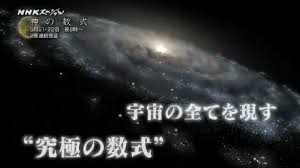
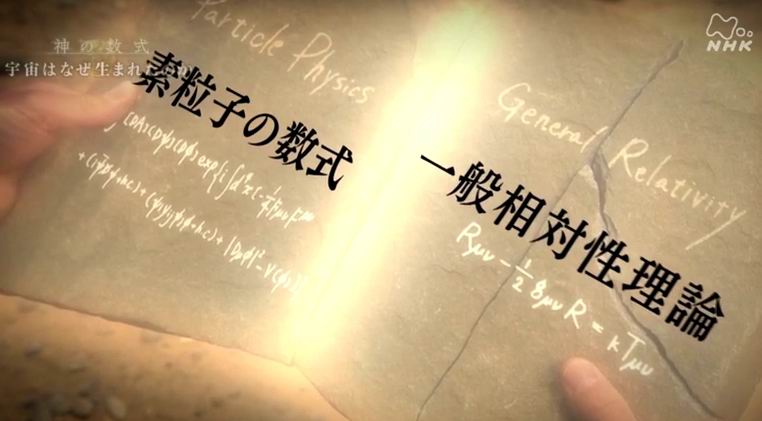




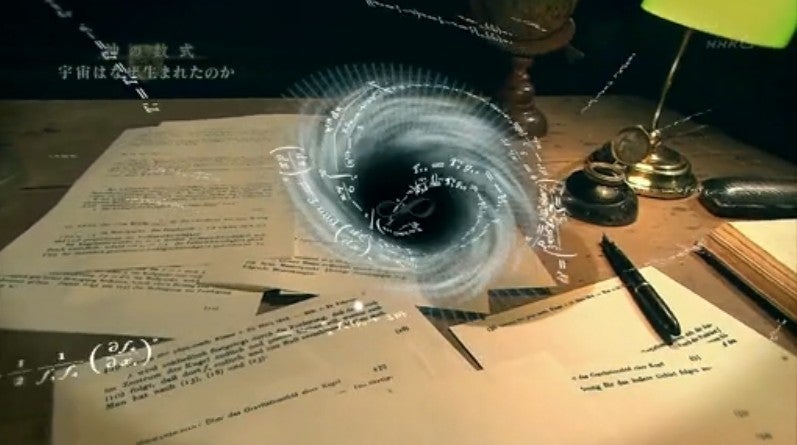



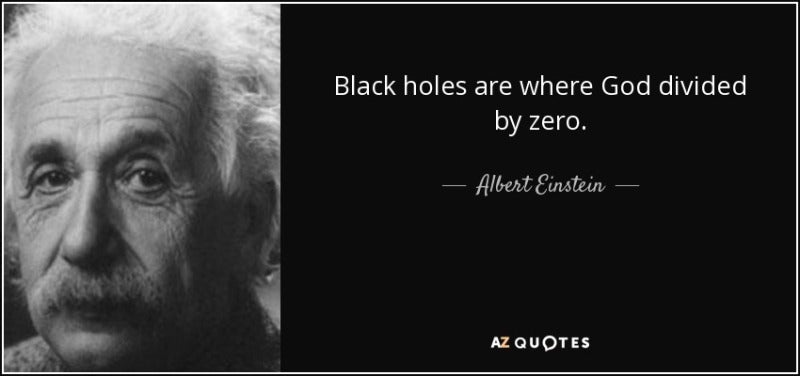













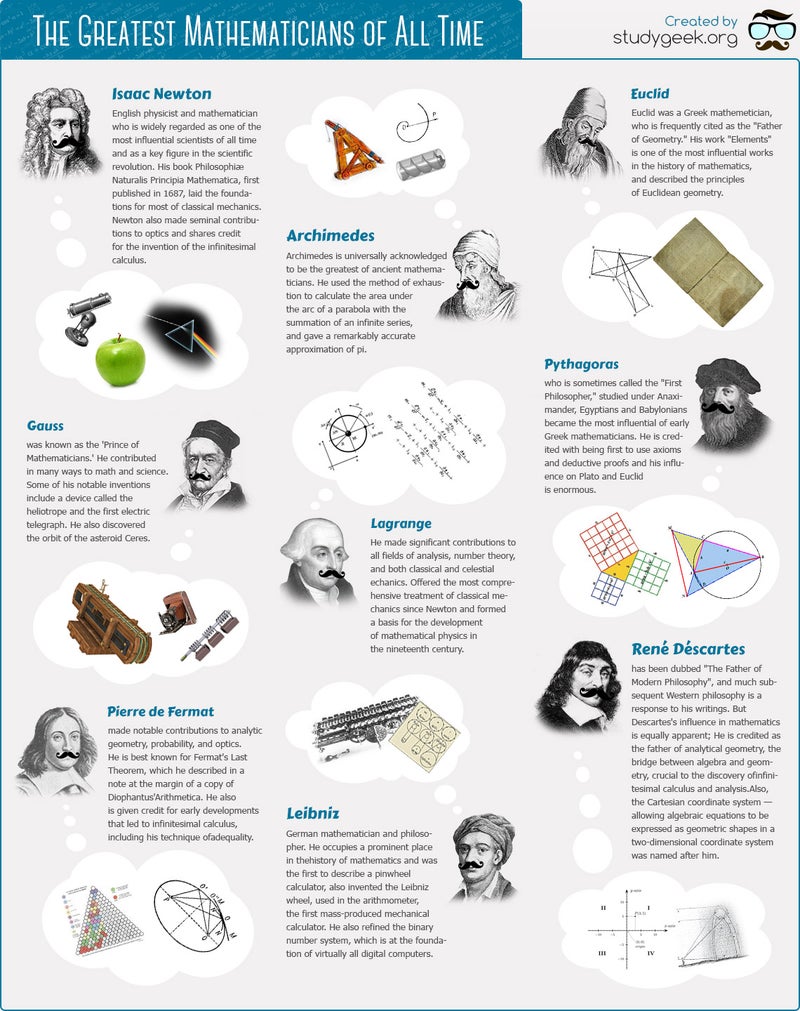

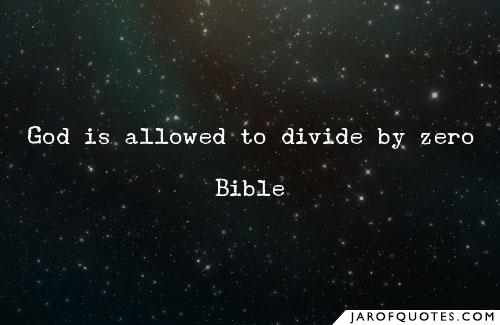



0 件のコメント:
コメントを投稿